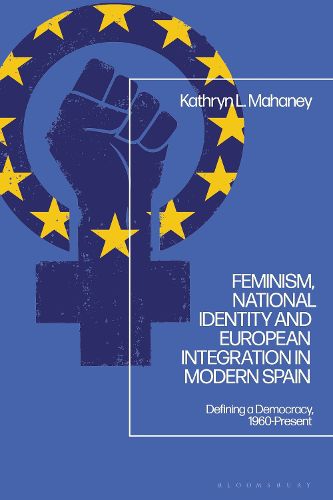Readings Newsletter
Become a Readings Member to make your shopping experience even easier.
Sign in or sign up for free!
You’re not far away from qualifying for FREE standard shipping within Australia
You’ve qualified for FREE standard shipping within Australia
The cart is loading…






This book explores the evolution of Spanish feminism in the context of European feminisms and institutions from the 1960s to recent times.
Beginning with Seccion Femenina, the official Francoist women's organization, Feminism, National Identity and European Integration in Modern Spain traces the interplay between Spanish women's policy and international policymaking. In some cases, as with the Seccion Femenina-championed Law of Political Rights (Ley de Derechos) in 1961, Spanish women's policy at least appeared more progressive than what Western democracies offered - notable at a time when Spain was considered backward. After Franco's death in 1975, Spain's democratic transition seemingly consolidated forward-thinking women's policy with a Constitution that guaranteed equality of the sexes in 1978, and with the creation of a national bureau charged with crafting women's policy, the Instituto de la Mujer (Women's Institute), in 1983.
Yet feminists found themselves marginalized in Spanish political decision-making, as Kathryn L. Mahaney argues so successfully in this study. Mahaney reveals that women ultimately influenced domestic policy not by acting within national networks but by leveraging European connections, particularly after Spain joined the European Economic Community (EEC) in 1986. The book shows that Spanish feminists worked through the EEC to gain international approval of policies that had met domestic opposition, and did so by representing them as necessary litmus tests of nations' democratic integrity. Their proposals were shaped by the specific context of Spanish feminism, but also by Spanish debates about what rights democracies should grant women and what equality in a post-fascist nation should encompass. This ground-breaking study explains that, in turn, these processes shaped both Spain's and the European Union's much-prized self-identities as democratic communities.
$9.00 standard shipping within Australia
FREE standard shipping within Australia for orders over $100.00
Express & International shipping calculated at checkout
This book explores the evolution of Spanish feminism in the context of European feminisms and institutions from the 1960s to recent times.
Beginning with Seccion Femenina, the official Francoist women's organization, Feminism, National Identity and European Integration in Modern Spain traces the interplay between Spanish women's policy and international policymaking. In some cases, as with the Seccion Femenina-championed Law of Political Rights (Ley de Derechos) in 1961, Spanish women's policy at least appeared more progressive than what Western democracies offered - notable at a time when Spain was considered backward. After Franco's death in 1975, Spain's democratic transition seemingly consolidated forward-thinking women's policy with a Constitution that guaranteed equality of the sexes in 1978, and with the creation of a national bureau charged with crafting women's policy, the Instituto de la Mujer (Women's Institute), in 1983.
Yet feminists found themselves marginalized in Spanish political decision-making, as Kathryn L. Mahaney argues so successfully in this study. Mahaney reveals that women ultimately influenced domestic policy not by acting within national networks but by leveraging European connections, particularly after Spain joined the European Economic Community (EEC) in 1986. The book shows that Spanish feminists worked through the EEC to gain international approval of policies that had met domestic opposition, and did so by representing them as necessary litmus tests of nations' democratic integrity. Their proposals were shaped by the specific context of Spanish feminism, but also by Spanish debates about what rights democracies should grant women and what equality in a post-fascist nation should encompass. This ground-breaking study explains that, in turn, these processes shaped both Spain's and the European Union's much-prized self-identities as democratic communities.